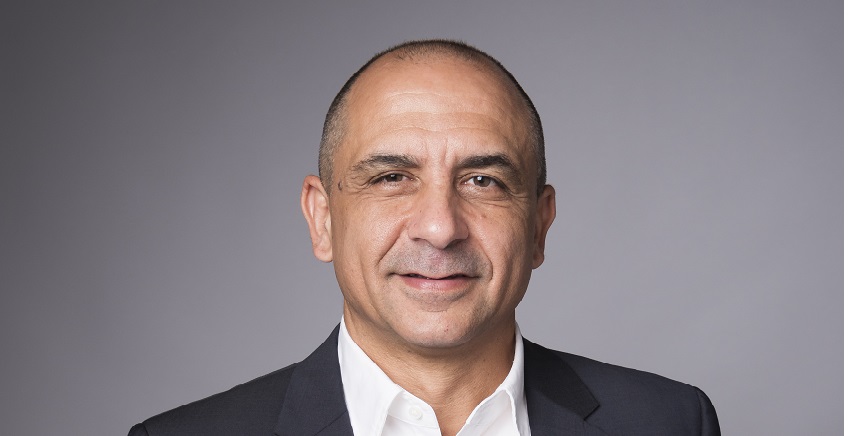When Hurricane Dorian ravaged The Bahamas in 2019, clean water and sanitation were scarce. An Israeli-funded humanitarian organization, IsraAID, was on the front lines providing emergency response. IsraAID worked together with the Grand Bahama Utility Company (GBUC) to develop a water program for Grand Bahama. They called upon ASTERRA to provide the information and tools to make the new program sustainable, by using satellites to detect drinking water leaks underground utilizing their patented and award-winning Recover product.
NASA satellite images show Dorian thrashing Grand Bahama for nearly 40 hours as one of the strongest Atlantic hurricanes in modern record. Over 70,000 people were left homeless, and few areas had running water or electric power. The hurricane raised the sea level by six meters, leaving 60% of the island surface covered by ocean water. The 20-foot surge of seawater and flooding, which sat for 3 days, destroyed the entire vertical infrastructure including pumping stations, utility poles, wires, electrical components, and control and motoring systems. GBUC’s freshwater aquifer, which was a high quality, abundant, and reliable supply of pristine drinking water for island, was severely compromised and impacted.
Together with IsraAID’s Anton Driz, an expert in integrated water resource management, a plan was put in place to desalinate the water using reverse osmosis. While this creates a reliable water supply, it consumes energy, and the water comes at increased costs. When leaks occur in the distribution system, those leaks are expensive. This is where ASTERRA products became a critical part of the water plan in Grand Bahama.
“The survey showed that 40% of the desalinated water was leaking back to ground water,” said Driz. “Desalination is expensive, particularly when there are leaks. Every gallon costs more, and this is an unsustainable cost. We knew ASTERRA would help quickly address water leaks and set them up for the future.”
Locating leaks in Grand Bahama’s pipelines was easy with ASTERRA’s Recover satellite aperture radar (SAR) product. Grand Bahama received reports showing the areas of probable leaks were contained within 14 kilometers—just 5% of the system. Once investigated and confirmed, ASTERRA Recover identified over three times more leaks every day than previously used detection methods.
Following the completion of GBUC’s $5 million reverse osmosis (RO) installation last month, they conducted a 30-day testing and commissioning process to ensure that the system was functioning adequately and at the specifications prescribed by the World Health Organization for potable water. Philcher Grant, GBUC and Public Affairs Chief Operating Officer stated, “Grand Bahamians and residents have experienced and overcome numerous challenges since Hurricane Dorian ravaged the island back in September 2019. Since then, our team has worked tirelessly with many partners including ASTERRA and we are grateful for their contribution which will help us to ensure that our customers have a reliable, potable water supply for years to come.” On December 13, 2021, the Grand Bahama Port Authority, Limited (GBPA), the regulatory authority with responsibility for utility regulation in Freeport, declared that GBUC now provides potable water to 100% of Grand Bahama residents.
“We have both a social and an economic responsibility to prevent and solve problems like what occurred in Grand Bahama,” said Ionatan Ascher, LATAM Spain & Portugal Sales Manager for ASTERRA. “One of the sub targets of United Nations Sustainable Development Goal 6 (SDG 6) is smart water systems management. ASTERRA technology makes it easy to monitor and manage water systems by using our patented algorithm to detect treated water underground from satellite data. This helps locate, monitor, and resolve leaks in the pipelines.”
ASTERRA (formerly Utilis) provides data-driven solutions for water utilities, government agencies, and the greater infrastructure industry. ASTERRA products use synthetic aperture radar (SAR) data from satellites and turns this data into large-scale decision support tools. The company’s proprietary algorithms and highly educated scientists and engineers are the key to their mission, to deliver actionable intelligence to advance Earth’s resource resilience.
Since 2017, ASTERRA technology has been used in over 59 countries, saving over 169,280 million gallons of potable water, reducing carbon dioxide emissions by 108,339 metric tons, and saving 423,200 MWH of energy, all in support of United Nations Sustainable Development Goals. ASTERRA is headquartered in Israel with offices in the United States, United Kingdom, and Japan. Their innovative data solutions are used in multiple verticals around the globe. ASTERRA is investing in artificial intelligence (AI) to bring their products to the next level.
[Pictured above: Eli Peretz. Photographrr: Mical Bendek]

